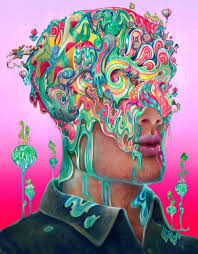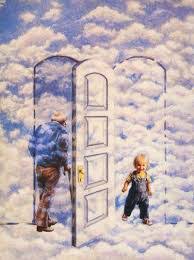The thoughts and beliefs that we want to rearouse are those that were often predominant in childhood, as mentioned in earlier blogs. They are spiritual, mental, emotional and biological beliefs that are innately present in the birth of each creature. Children believe not only that there will be a tomorrow, and many tomorrows, but they also believe that each tomorrow will be rewarding and filled with discovery.

They fell themselves couched in an overall feeling of security and safety, even in the face of an unpleasant environment or situation. They feel drawn to other people and to other creatures, and left alone they trust their contacts with others. They have an inbred sense of self-satisfaction, and they instinctively feel that it is natural and good for them to explore and develop their capabilities.

They expect relationships to be rewarding and continuing, and expect each event will have the best possible results. They enjoy communication, the pursuit of knowledge, and they are filled with curiosity.

All of those attitudes provide the strength and mental health that promotes their physical growth and development. However simple those ideas may sound to the adult, still they carry within them the needed power and impetus that fill all of life’s parts. Later, conflicting beliefs often smother such earlier attitudes, so that by the time children have grown into adults they actually hold almost an opposite set of hypotheses. These take it for granted that any stressful situation will worsen, that communication will worsen,that communication with others is dangerous, that self-fulfillment brings about the envy and even of others, and that as individuals they live in an unsafe society, set down the middle of a natural world that is itself savage, cruel, and caring only for its survival at any cost.

Our body actually lives on large quantities of joyful expectation.

The fetus is propelled by the expectation of future growth and development. It is bad enough to anticipate that most unfortunate situations will worsen rather than improve, but it is foolhardy indeed to believe that mankind is bound to destroy itself, or that nuclear destruction in nearly inevitable.

Many people no longer believe in life after death, and so large numbers of the population are philosophically denied a spiritual or a physical future.

This deprives body and mind of the zest and purpose needed in order to enjoy any pursuits or activities. Such beliefs make any human endeavor appear futile. There are ways of reacting to the dangers of nuclear energy that are far more healthy and beneficial, and we will discuss these in later blogs.

For now, I simply want to suggest that all such beliefs should be understood and dismissed as soon as possible. We hope to show how most natural health-promoting beliefs can be applied to all mental, physical, or emotional illnesses or difficulties. I want to assure that regardless of our circumstances, age, or sex, we can indeed start over, re-arousing from within ourselves those earlier, more innocent expectations, feelings and beliefs. It is much better if we can imagine this endeavor more in the light of children’s play, in fact, rather than think of it as a deadly serious adult pursuit.
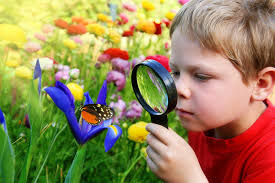
In other words, we will try to instill a somewhat playful attitude, even toward the most severe problems, for the very idea of play encourages the use of the imagination and the creative abilities.

This starting over. Again, because of simultaneous nature of time, beliefs can be changed in the present moment.

There is no need to search endlessly into the past of this life or any other, for the “original” causes for beliefs. Making a change in the present of a certain kind will automatically alter all beliefs “across the board,” so to speak. It is important, however, that we do not strain too hard to achieve results, but allow ourselves some leeway. We react to our beliefs habitually, often unthinkingly, and in usual ideas of time, and in our experience of it — we must allow oneself “some time” to change that habitual behavior.

As we do, we will discover oneself reacting to the desired beliefs as easily and automatically as we did to the undesirable ones. As we do, keep the idea of child’s play in mind, however. this will allow us to keep the entire affair in a kind of suspension.
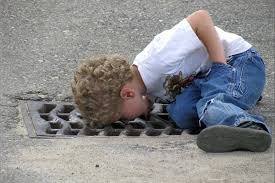
The child plays at being an adult long before he or she is one, and so we can play with more desirable beliefs while we are still growing into that more beneficial picture.

One of the issues I want to discuss in depth is that of spontaneity in relationship to health and disease.

Our very physical existence itself is dependent upon the smooth functioning of many spontaneous processes. Our thinking, breathing, and motion are all guided by activities that are largely unconscious — at least from the standpoint of what we usually think of as the conscious mind.

Our body repairs itself constantly, and our mind thinks — all without our normally conscious attention. The same applies to all of those inner processes that make life possible. Our thoughts are conscious, but the process of thinking itself is not. Spontaneity is particularly important in the actions of children, and in the natural rhythmic motion of their limbs. Feelings also seem to come and go in a spontaneous fashion.

It is indeed as if some inner spontaneous part of the personality is far more knowledgeable than the conscious portion of which we are so rightfully proud.

Many people, however, fear spontaneity: it evokes extravagance, excesses, and dangerous freedoms. Even people who are not so fervently opposed to spontaneity often feel that it is somewhat suspect, distasteful, perhaps leading to humiliating actions. Spontaneity, however, represents the spirit of life itself, and it is the basis for the will to live, and for those impulses that stimulate action, motion, and discovery.

In the truest regard, our life is provided for us by these spontaneous processes. As I’ve mentioned in previous blogs, at one time the human personality was “more at one with itself.” It accommodated unconscious and conscious experience more equitably. Man and woman were more aware of his and her dreams and so-called unconscious activity.

It is only because civilized man and woman have somewhat overspecialized in the use of one kind of knowledge over another that people fear the unconscious, spontaneous portions of the self. The fear alone causes them to block out still more and more unconscious knowledge. Since the spontaneous portions are so related to bodily activity, they are very important in facilitating good health, and when people feel divorced from their spontaneous selves, they also fell divorced to the same extent from their own bodies. Such individuals become frightened of freedom itself, of choices and of changes. They try desperately to control themselves and their environment against what seems to be a raging, spontaneous mass of primitive impulses from within, and against a mindless, chaotic, ancient force of nature. In the physical world, such behavior often leads to compulsive action — stereotyped mental and physical motion and other situations with a strong repressive coloration. Here any expression becomes almost taboo. The conscious mind must be in control of all actions as much as possible, for such a person feels that only rigid, logical thought is strong enough to hold back such strong impulsive force.

These attitudes may be reflected in rather simple compulsive actions: the woman or man who cleans the house endlessly, whether it needs it or not; the man or woman who will follow certain precise, defined routes of activity — driving down certain streets only to work; washing his or her hands much more frequently than other people; the person who constantly buttons and unbuttons a sweater or vest. Many such simple actions show a stereotyped kind of behavior that results from a desperate need to gain control over oneself and the environment.

Any excessive behavior may enter in, including over-smoking, overeating, and overdrinking.

It will be difficult for some people to believe that spontaneity is to be trusted, for they may be only aware of feeling destructive or violent impulses. The idea of expressing impulses spontaneously will be most frightening under those conditions.

Actually the people involved are repressing not violent impulses but natural loving ones. They are afraid that expressions of love, or the need for dependence will only bring them scorn or punishment. Therefore, they hide those yearnings, and the destructive impulses actually serve to protect them from the expression of love that they have somehow learned to fear.

Science itself, for all of its preciseness in some areas, often equates instinctive, impulsive, chaotic, destructive activity as one and the same.

Nature and the inner nature of man and woman are both seen to contain savage, destructive forces against which civilization and the reasoning mind must firmly stand guard.

Science itself often displays compulsive and ritualistic behavior, to the point of programming its own paths of reasoning, so that they cover safe ground, and steadfastly ignore the great inner forces of spontaneity that make science — or any discipline — possible. As I have said before, spontaneity knows its own order. Nothing is more highly organized than the physical body that spontaneously grow all of its own parts.

As our life is provided for us, so to speak, by these spontaneous processes, the life of the universe is provided in the same fashion. We see physical stars, and our instruments probe the distance of space — but the inner processes that make the universe possible are those same processes that propel our own thinking. It is erroneous, therefore, to believe that spontaneity and discipline are mere opposites. Instead, true discipline is the result of true spontaneity.

Value fulfillment of each and every element in life relies upon those spontaneous processes, and their source is the basic affirmative love and acceptance of the self, the universe, and life’s conditions.

Since ancient times religions has tried to help man and woman understand the nature of his or her own subjective reality — but religion has its own dark side, and for this reason religion unfortunately has fostered fear of the spontaneous.

Instead of promoting the idea of man’s and woman’s inner worth, it has taught people to distrust the inner self and its manifestations. Most churches preach a dogma that stresses concepts of the sinful self, and sees man and woman as creatures contaminated by original sin even before birth.

This distorted picture depicts a species of sinners innately driven by evil, sometimes demonic, forces. In this dogma man and woman needs to apologize for his or her birth, and the conditions of life are seen as a punishment set by God upon his or her erring creatures. Unfortunately such concepts are also reflected in fields of psychology, particularly in Freudianism — where, say, slips of the tongue may betray the self’s hidden, nefarious true desires.

The unconscious is understood to be a garbage heap of undesirable impulses, long ago discarded by civilization, while again much religious theory projects the image of the hidden self that must be kept in bounds by good work, prayer, and penance.

Amid such a conglomeration of negative suppositions, the idea of a good and innocent inner self seems almost scandalous. To encourage expression of that self appears foolhardy, for it seems only too clear that if the lid of consciousness were opened, so to speak, all kind of inner demons and enraged impulses would rush forth.

Again, people who have such views of the inner self usually project the same ideas upon nature at large, so that the natural world appears equally mysterious, dangerous, and threatening.

In political terms such persons also look for strong authoritative groups or governments, stress law and order above justice or equality, and tend to see the poorer, less advantaged members of society as impulse-ridden, dangerous, and always ready for revolution. It is quite frequent for persons with those beliefs to discipline their bodies overmuch, take positions as police guards, or set themselves up in one way or another in control of their fellows.

I am not here stating that all police guards, members of the military or whatever, fall into that category. Such people will, however, tend toward a strongly disciplined life. Many of their health problems will deal with eruptions — interior ulcers, skin eruptions, or in very definite mental and emotional eruptions, and great outbursts of force and temper all the more noticeable because of the usual disciplined patterns of behavior.

In most such cases there is a lack of the normal range of emotional expression. Such persons often find it extremely difficult to express love, joy, or gratitude, for example, and this lack of expression is taken for granted by others, who do not see it in its true light, but think instead that the person is simply reticent.

Secondary personalities and schizophrenic episodes are also somewhat characteristic — again appearing as sudden explosive behavior when conflicting beliefs are dammed up and held back. And when it is believed that the inner self is indeed a bed of chaotic impulses, then it becomes less and less possible for an individual to express normal range of activity. The person then feels lethargic and out of touch with work of family.

Expression is a necessity of life, however. Each person feels that drive. When one set of rigid beliefs threatens to make action appear meaningless, then another set of buried, repressed beliefs may surface, providing new impetus precisely when it is needed — but also forming a secondary personality with characteristics almost opposite to those of the primary self.

We will have more to say on all of these issues — but now I want to discuss spontaneity, or its lack, in relationship to sexuality and health. Sexual health is incredibly important for each of the partners involved but especially for women as it can cause many health problems for them if certain guidelines are not followed. If you are looking for expert advice, visit www.advancedgynecology.com by following the link.

All of the negative beliefs just mentioned touch upon sexuality in one way or another. Those with the beliefs just mentioned often think of sexuality as bestial, evil, and even humiliating.

These attitudes are intensified where the female sex is concerned. We have, of course, a strong drive toward sexuality, and if we believe that it is to be shunned at the same time, then we are in a very ambiguous position. Women with such beliefs and conflicts often wind up having hysterectomies, performed incidentally by male doctors, who hold the very same beliefs.

Many men look forward to having sons, while at the same time they revere marriage as a necessary part of respectable family life, and also feel that marriage is somewhat degrading — particularly to a male — and that the sex act itself is only justified if it brings him an heir.

Such a male will seek sex with prostitutes, or with women he considers beneath him. In a strange fashion, he may even feel that it is wrong to have sex with his own wife, believing that the sex act so degrades the both of them. In many cases these people will be great sportsmen, follow conventionalized male pursuits, and perhaps express contempt for the arts or any interest considered remotely feminine.

Many schools of religion and so-called esoteric knowledge have promoted the idea that sexuality and spirituality are diametrically opposed to each other.

People in the sports arena also often encourage the concept that sexual expression is somewhat debilitating to the male, and can weaken his constitution. Priests take vows to ensure sexual abstinence, in other words they tightly fasten the package, and any urges they may have in a form of “sexual discipline”. The fact is that sexual expression is, again, an important element in the entire range of human experience, encouraging mental and physical health and vitality.

Some people may have a stronger or weaker sex drive than others, and yet that drive is a strong part of any individual’s natural rhythm. Damned up, such sexuality still keeps trying for expression, and it is often men or women of habitual “sexual discipline” who suddenly break out in bouts of sexual promiscuity or violence.

In actuality, the combination of a philosophical stress upon discipline, physical and mental, with the belief in the sinful self, often brings about the most unfortunate human dilemmas. These ideas usually ride along with feelings that power is desirable but dangerous. To abstain from sexuality then means to store up one’s own power. People with such beliefs often have severe problems with constipation, and have retention symptoms — retaining water, for example, or salt or whatever.

They may also suffer with stomach difficulties, many being overly fond of extremely spicy foods. Some have unusually heavy appetites, even though these may be regulated by a series of diets — which are then broken by overeating.

There are so many other elements involved in human nature that I do not really want to point out any culprits, yet male-segregated communities are obviously notorious for encouraging that kind of behavior. Every individual in such institutions or societies is not affected in the same fashion, of course — yet we do have these kinds of closed societies, relatively speaking, and they can indeed serve as cradles for fanaticism and rigid stereotypes of behavior. Again, here we find that discipline, rather than free will, is stressed, so that the opportunity for choices is drastically reduced. The more open a society, the more healthy its people.

What I have said also applies to organizations segregated along feminine lines, though to a lesser degree.

In both cases the sexes are denied any true communication, and an extremely artificial framework is maintained, in which the sexes literally become strangers to each other. This also encourages various kinds of hysterical reactions, as well as a larger frequency of “contagious diseases” than is experienced by the normal population.

These conditions also occur in some varieties of religious cults, whether or not strict sexual segregation is enforced. If human relationships are highly regulated and supervised, or family members encouraged to spy upon their relatives or friends, then we have the same kind of curtailment of natural expression and communication.

People in such societies often suffer from malnourishment, frequent beatings, an excessive use of the enema, and often indulge in physical punishment. The children are strictly raised, and a lack of normal spontaneity is the rule rather than the exception. Members of such organizations often suffer maladies in which their bodies do not utilize nutrients. They are often food faddists of one kind or another, but because they do fear spontaneity to such a degree they will often become afflicted with diseases of maladies associated with the body’s unconscious processes.

We can also find single families, of course, that operate like cults — or an entire nation — that are given over to repression with its resulting violence.

The ideas that we have, then, play a large role in the way the body handles its nutrients, and utilizes its health and vitality. If we believe that the body is somehow evil, we may punish it by nearly starving to death, even though our diet might be considered normal by usual standards. For it is possible for our ideas to cause chemical reactions that impede our body’s ability to accept nourishment. If we believe that the body is evil, the purest health-food diet will or may do us little good at all, while if we have a healthy desire and respect for our physical body, a diet of TV dinners, and even of fast foods, may well keep us healthy and nourished.

If we are talking about health, it is our beliefs that we must look. We have the most efficient and beautiful physical organs, the most elegant joints and appendages, the most vibrant lungs and the most exquisite of senses. It is up to us to form a body of beliefs that is worthy of our physical image — for we are nourished by our beliefs, and those beliefs can cause our daily bread to add to our vitality, or to add to our cares and stress.
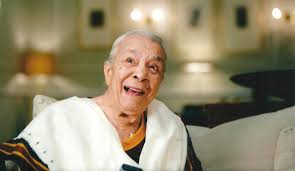
The weight of unfortunate beliefs perhaps falls heaviest on the older segments of the population, for the beliefs have had a longer period of time to operate relatively unimpeded.

Those particular beliefs actually take hold in young adults, so that it seems that all of life is meant to come to its fullest flower in young adulthood, and then from that prestigious position fall quicker and quicker into disuse and disarray.
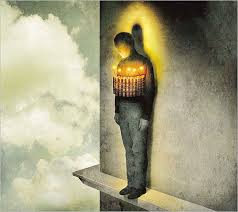
These ideas do not inflict severe difficulties upon older members of the population, but they also have a vital part to play in the behavior of many young people who commit suicide directly or indirectly. It seems to such youngsters that the pinnacle of life is just at hand, to last upon youthful beauty and youthful achievement, so that it appears that all of the rest of life’s activities must suffer by contrast.
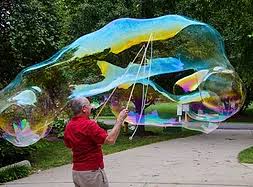
Knowledge through experience is not considered a practical-enough method of learning, so that the skills and understanding that come with age are seldom taken into consideration.
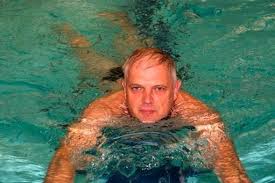
Again, to a certain degree, religion and science — and the medical sciences in particular — seem devoted to encouraging the most negative beliefs about human nature. It is taken for granted that all mental, physical, spiritual and emotional satisfactions become lesser with advancing age. It is taken for granted that memory fails, the body weakens, the senses stagnate, and emotional vividness dims. It is often considered scandalous to even imagine sexual activity after the age of even 40 or 50.

Faced with the kind of a projected future, no wonder many adolescents prefer to die before catching sight of the very first hint of deterioration — the first wrinkle or touch of gray in the hair. What forerunner of disaster such natural signs must seem! And at the other end of the scale, older parents are treated by their grown children as if they themselves were falling into a grotesque version of a second childhood. Many people actually speak louder to older persons, whether or not they have any hearing difficulties at all and require the help of cordless phone for hearing impaired or not.

Our entire world of commerce and advertisements, of competition and of business, prolong such attitudes. This is aside from the impact of the entertainment industry, which reflects that same glorification of youth, and that fear of growing old.

There are very definite, excellent side-effects of growing older, such as being able to use a site like www.keyadvice.co.uk/equity-release/calculator to receive equity from the value of your home. That we will also discuss in future blogs — but here I want to assure the blog reader that basically speaking there are no diseases brought about by old age alone.

The body often wears out because it has been used less and less — and that is because little study has been given to the true capabilities of the healthy physical body in the later years of life. That period also contains certain rhythms in which normal healing processes are highly accelerated, and the life force itself does not wear out or lessen within a body. Its expression may be impeded at any time, but the unique energy of each individual is not drained away because of age alone.

We will have more to say concerning older people and their ways of life, and also discuss the many beliefs and ideas that can come almost immediately to their aid. The subject of suicide will also be discussed in a different context, and when I invite my blog readers to start over, I want it understood that we can indeed start over regardless of our age or circumstances.
